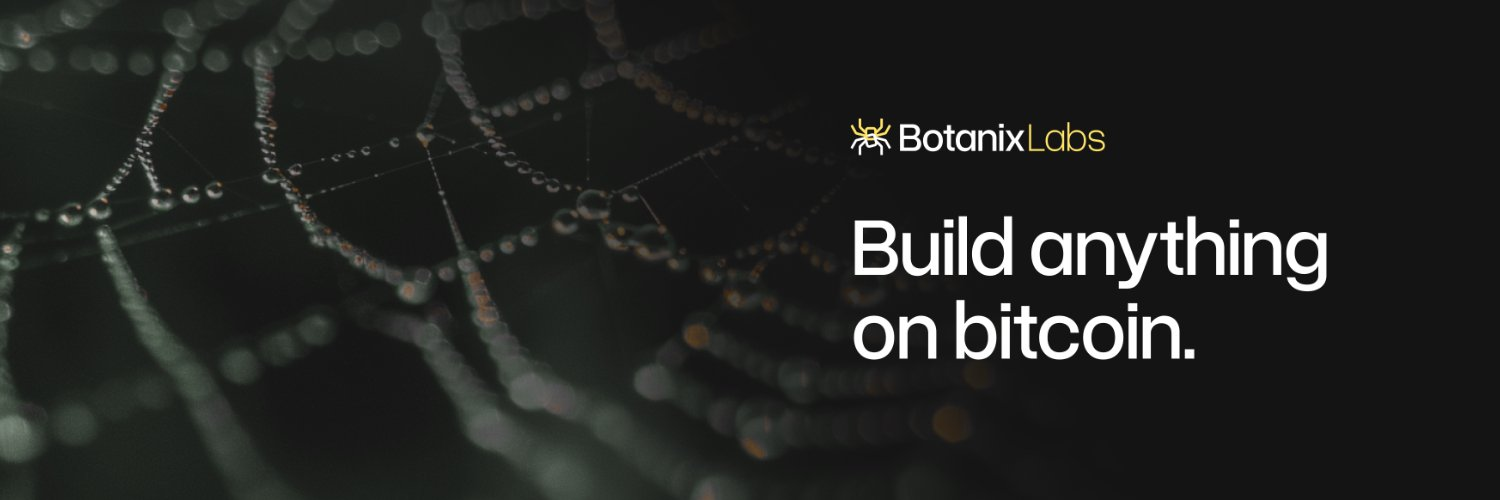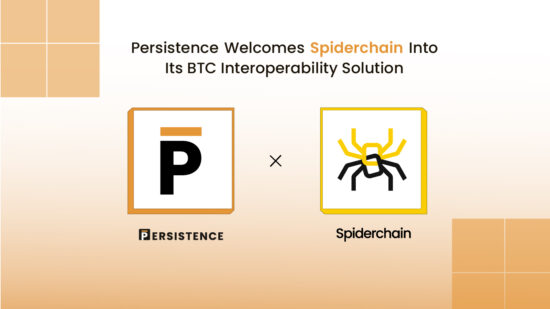Persistence One is excited to continue its spree of integrating more BTC variants into its cross-chain BTC swapping solution. The latest addition to the interoperability platform is Botanix’s Spiderchain, providing an avenue for BTC on Spiderchain to be easily interoperable with a wide range of other BTC variants on different networks.
Persistence One aims to bring interoperability to the Bitcoin DeFi world (BTCfi) and remove the fragmentation associated with the dozens of BTC variants appearing on multiple L2 networks. Our solution will be completely decentralized and will be powered by Intents, allowing users to specify the outcome of a particular cross-chain swap, while Solvers fulfil the orders with zero-slippage and near-instant finality.
Botanix is an innovator in the space, and its Spiderchain provides a unique solution to safeguarding BTC deposited on its L2 from Bitcoin. With over 1.6 million transactions already facilitated on the Spiderchain, let’s examine why Botanix’s BTC variants are a welcomed addition to the Persistence One interoperability solution for Bitcoin.
What is Botanix?

Botanix is an EVM-compatible blockchain L2 built for the Bitcoin network by Botanix Labs. The platform has birthed a new L2 protocol known as Spiderchain that aims to support a decentralized financial ecosystem running directly on the Bitcoin blockchain.
Essentially, Botanix has forked the Ethereum Virtual Machine to help developers build anything on Bitcoin, from games to stablecoins, businesses to banks – everything built on Ethereum can be replicated on Bitcoin through Botanix.
Spiderchain, a groundbreaking protocol for the BTCfi space, operates as a Proof-of-Stake Layer on the Bitcoin network. It allows users to stake Bitcoin on the Spiderchain through decentralized multisigs, ensuring a user-friendly and secure experience. This means a new multisig is created for every request to move BTC to Spiderchain, controlled by a random subset of 100 participants called Orchestrator nodes.
Orchestrator nodes play a crucial role in the Spiderchain ecosystem. They create new blocks, validate transactions, and mint and burn synthetic Bitcoin on Botanix. Importantly, they also safeguard the BTC locked in the multisig wallets. To ensure the system’s integrity, Orchestrator nodes are required to stake their own BTC, which acts as a deterrent against dishonest behavior. All rewards within the system are paid in BTC, underscoring the ecosystem’s focus on Bitcoin.
Best of all, the Spiderchain doesn’t require any changes to the Bitcoin Core codebase, and all transactions on Botanix are settled on the Bitcoin blockchain, allowing L2 to inherit Bitcoin’s immutability, decentralization, and security.
Since its launch, Spiderchain has seen over 336,000 unique wallet addresses and has facilitated over 1.6 million transactions on its network, demonstrating the significant potential and building momentum behind Botanix.
Why Do BTC variants Like Spiderchain’s Need Interoperability?
The BTCfi world is thriving with innovation. Projects like Botanix continue to push the boundaries of what’s possible on Bitcoin, bringing Ethereum-like smart contracts to the Bitcoin Core codebase without requiring any hard fork.
While the innovation is a monumental milestone for Bitcoin, the sheer number of BTC variants remains siloed among a handful of ecosystems, making it difficult to swap one for another.
Interoperability, a crucial factor that propelled DeFi on Ethereum to unprecedented heights, is equally essential for the BTCfi world. It enables seamless interaction between different BTC variants, fostering growth and unlocking the full potential of the BTCfi space.
Without interoperability, the friction associated with moving one BTC variant for another stifles growth as users are less likely to undergo multiple processes through bridging and centralized exchanges to hunt for opportunities in the BTCfi space across different ecosystems.
By introducing interoperability, we eliminate this friction, making it easier for users to explore new opportunities on multiple BTCfi networks. This, in turn, leads to larger DeFi opportunities, higher liquidity, and a more vibrant BTCfi ecosystem.
Persistence One is on a mission to build the number one venue for BTC interoperability to the BTCfi world.
What is Persistence One?
Persistence One is a Bitcoin-focused cross-chain swapping solution. Our platform will use cross-chain intents, which allows users to specify the outcome of a particular swap while allowing the Solvers to choose their routes to make it happen.
Essentially, it will enable users to specify the ‘what’ of a specific swap, such as the desired asset and quantity, while leaving the ‘how’ it is executed to the experts. Solvers can utilize unified liquidity across the entire market and take on the finality risk for users to provide incredibly fast swaps between chains with near-zero slippage.
To learn more about cross-chain intents, take a look at this blog.
Most importantly, Persistence One and its interoperability product will be secured by Bitcoin, leveraging the security-sharing infrastructure introduced by Babylon Labs.
As you can see, we’re very BTC-orientated, and our service for BTC builders will only integrate BTC-aligned or BTC-related assets. Our goal is to make it easier to move Bitcoin around in all its forms and help bring the BTCfi world closer together in a cohesive ecosystem to push the boundaries of what’s possible with BTCfi, and we welcome the Spiderchain as our latest addition.
About Persistence One
Persistence One is building a Bitcoin interoperability solution to enable cross-chain BTC swaps across Bitcoin Layer 2s.
The rapid rollout of Bitcoin L2s and side chains has led to fragmentation, hurting BTCfi scalability. Using the power of intents, Persistence One will enable users to move assets across Bitcoin Layer 2s more efficiently than traditional bridging, offering fast, secure, zero-slippage cross-chain swaps.
Twitter | LinkedIn | Telegram | YouTube | Reddit | [email protected]





